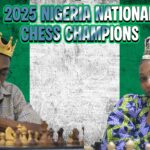Yesterday, I had two funny moments in one of my games that gave me some food for thought. I had the black side in this game with my opponent, who is my namesake.
In the first scenario, I chose a straightforward simplification. I found a sequence that would lead to a clear checkmate—though it would take about 14 moves. Knowing it was a winning line, I played Rh5, and immediately, my opponent resigned. Part of me felt satisfied because I had secured the win with an uncomplicated approach, leaving little room for error.
In the second scenario, I spotted a checkmate sequence that would only take about 7-8 moves with Rb5!. However, I got a bit lazy to calculate it all to the end. Instead, I played a simpler variation, thinking that if I had gone for the 7-move checkmate, my opponent might have continued to play, giving me a chance to execute it in full. The choice nagged me a little—did I miss an opportunity to sharpen my calculation depth by choosing the simpler move?
Which approach would actually help me progress on my path to becoming a better player? Here’s my take:
Simplification (Scenario 1): Sometimes, going for a simplified, winning line is practical, especially in tournament settings. Choosing a straightforward move like Rh5, I eliminated doubts and secured an easy path to victory. This type of decision-making is valuable in competitive play because it shows confidence and a clear understanding of how to convert a winning position without over-complicating things.
Precision and Depth (Scenario 2): On the other hand, pushing myself to calculate and execute the 7-move checkmate would have given me the chance to practice and refine my calculation sharpness OTB. As I aim for improvement in my games, consistently going for the best, most precise move—even if it takes longer to analyze—would strengthen my calculation skills and help me recognize more patterns.
What do you all think? Which choice would you have made in these scenarios, and how do you balance precision and simplification in your own games?















